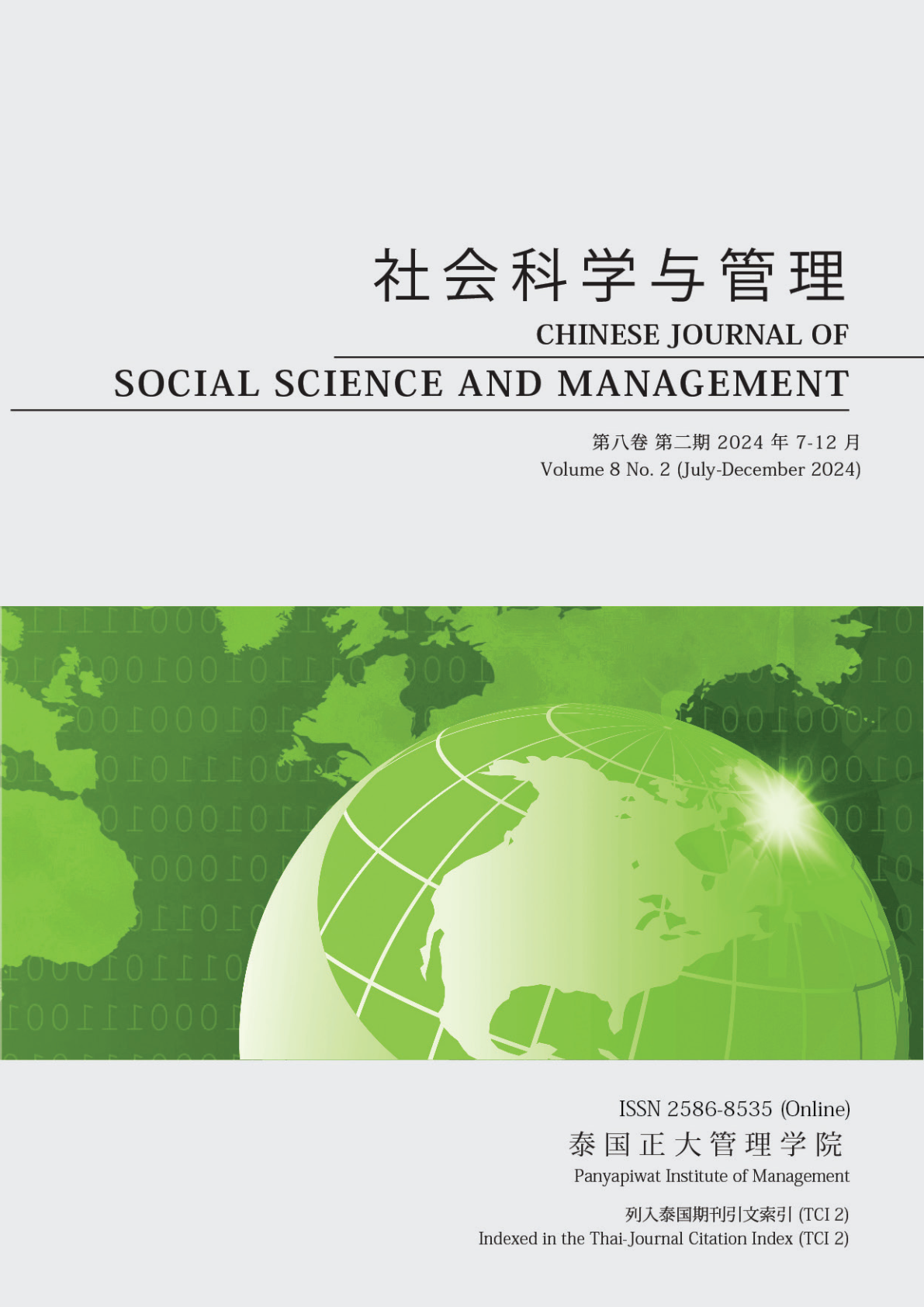THE RELATIONSHIP BETWEEN INTERNET THINKING, EMPLOYEE SATISFACTION, AND CORPORATE PERFORMANCE IN THE CONTEXT OF DIGITALIZATION——TAKING NM COMPANY AS AN EXAMPLE
Main Article Content
Abstract
With the advent of digitalization and the information era, many enterprises have shown rapid growth in business performance. However, in the past two years, the effects of the COVID-19 pandemic have caused a significant impact on enterprises, and employees at all levels have shown different degrees of tendency to leave companies. Enterprises are plagued by the iteration of both internal and external factors in the development of business operations regarding how enterprises can make a breakthrough in this situation and whether companies will be able to maintain their original corporate performance. This paper investigates the relationship between Internet thinking, employee satisfaction and corporate performance in the digital context by taking a typical case, Guangxi NM, as the research object. Finally, it is concluded that there is a significant positive effect between corporate Internet thinking and both employee satisfaction and corporate performance, employee satisfaction has a significant positive effect on corporate performance, and employee satisfaction has a partially mediating role between connected thinking and corporate performance.
Article Details

This work is licensed under a Creative Commons Attribution-NonCommercial-NoDerivatives 4.0 International License.
Chinese Journal of Social Science and Management Editorial Division
The Office of Research and Development, Panyapiwat Institute of Management
85/1 Moo 2, Chaengwattana Rd., Bang Talat, Pakkred, Nonthaburi 11120, Thailand
Tel. 02 855 01048 E-mail: cjssm@pim.ac.th
References
Baron, R. M., & Kenny, D. A. (1986). The moderator-mediator variable distinction in social psychologic al research: Conceptual, strategic, and statistical considerations. Journal of personality and social psychology, 51(6), 1173.
Bernardin, H. J. (1995). performance appraisal design development and implementation. B Lackwel.
Bernhardt, K. L., Donthu, N., & Kennett, P. A. (2000). A longitudinal analysis of satisfaction and profitability. Journal of Business Research, 47, 161-171.
Carl, G. J. (2004). Advance in experimental social psychology. Academical Press.
Hair, J. F., William, C. B., Barry, J. B., Rolph, E. A., & Ronald, L. T. (2006). Multivariate data analysis. Prentice Hall.
Hoppock, R. (1935). Job satisfaction. Harper and Brothers, 8(3), 34-35.
Cheng, H. (2014). Transforming corporate culture with internet thinking. Communication World, 25, 16. [in Chinese]
Duan, H. Y. (2007). Research on employee satisfaction of travel agencies [Master’s thesis]. Hunan Normal University. [in Chinese]
Gao, X. (2011). Discussion on the relationship between employee engagement and job satisfaction [Doctoral dissertation]. Beijing Normal University. [in Chinese]
Gerhart, B. A., Boudreau, J. W., & Trevor, C. O. (1995). Voluntary turnover and job performance: Curvilinearity and the moderating influences of salary growth, promotions, and labor demand. CAHRS Working Paper Series.
Jia, S. H., Chen, H., & Tian C. H. (2003). Enterprise performance evaluation based on stakeholder theory-An analytical framework and applied research. Research Management, 4, 94-101. [in Chinese]
Jiang, Y. X., & Wu, Y. C. (2019). Literature review and research on employee job satisfaction. National Circulation Economy, 21, 87-89. [in Chinese]
Jiao, K. (2015). The influence of internet thinking on the boundaries of enterprises. Enterprise Management, 6, 123-125. [in Chinese]
Liu, H. (2010). On the relationship between employee satisfaction and job performance. Contemporary Economics, 22, 164-165. [in Chinese]
Liu, Y. (2004). How to achieve a “win-win” between employee satisfaction and corporate performance. Economist, 11, 163-164. [in Chinese]
Nunnally, J. C. (1978). psychometric theory (2nd ed.). McGraw-Hill.
Wang, A. Q. (2015). Research on the influence of internet thinking on enterprise human resource management. Human Resource Management, 6, 7-8. [in Chinese]
Wang, C. H. (2009). Research on high-performance work system of knowledge-based enterprises [Doctoral dissertation]. Xiamen University. [in Chinese]
Xi, B. (2004). Research on the influence of internal marketing on employee satisfaction and enterprise performance [Master’s thesis]. Huazhong University of Science and Technology. [in Chinese]
Xu, G. Z. (1977). Job satisfaction of factory workers and its correlates. Journal of the Institute of Ethnology of the Central Research Institute of Taiwan, 43, 23-24. [in Chinese]
Zhang, X. M. (2018). On the human resource management of small and medium enterprises based on the background of “Internet+”. Knowledge Economy, 8, 12-13. [in Chinese]
Zhao, P. (2019). Exploration on human resource training and development of “Internet+” small and medium-sized enterprises. Small and Medium-sized Enterprises Management and Technology


